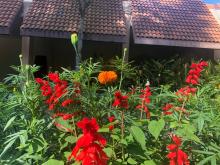
Abstract: Evidence suggests that politicians in advanced democracies are positively selected on characteristics relevant to their suitability for political office. Whereas stereotypes abound, much less is known about the quality of politicians in developing countries. Drawing on unique experimental and survey data on village-level politicians in West Bengal, India, we find some evidence of positive selection into office: elected politicians are more educated, motivated, and have greater integrity than their constituents. However, they also have lower cognitive ability and are more likely to come from politically networked families. Comparing first-timers with re-elected politicians, we observe that experienced politicians display somewhat more political knowledge and motivation than their inexperienced peers, but are also more likely to be wealthy and male. Our findings demonstrate that conclusions about politician quality depend critically on measurement choices and that there may be competing dimensions of politician quality.
Speaker: Vegard Iversen has a PhD from University of Cambridge and is a Professor of Development Economics and Head of the Livelihoods and Institutions Department (LID) at the Natural Resource Institute (NRI), University of Greenwich. He returned to UK academia in 2018 after 12 years in India where he was based at the Indian Statistical Institute, Delhi, Jindal School of Government and Public Policy and Indian Institute of Management Ahmedabad. Together with co-authors, he has used unique and in-depth survey and behavioural experimental data to study politicians, voters and local democracy in India, including who gets elected for office, how to measure politician quality and whether time in office changes male and female politicians differently. His other ongoing research addresses social mobility and misperceptions of and changes in (conservative) gender norms. He is a former co-editor of Journal of South Asian Development and serves on the Editorial Board of Journal of Development Studies.
